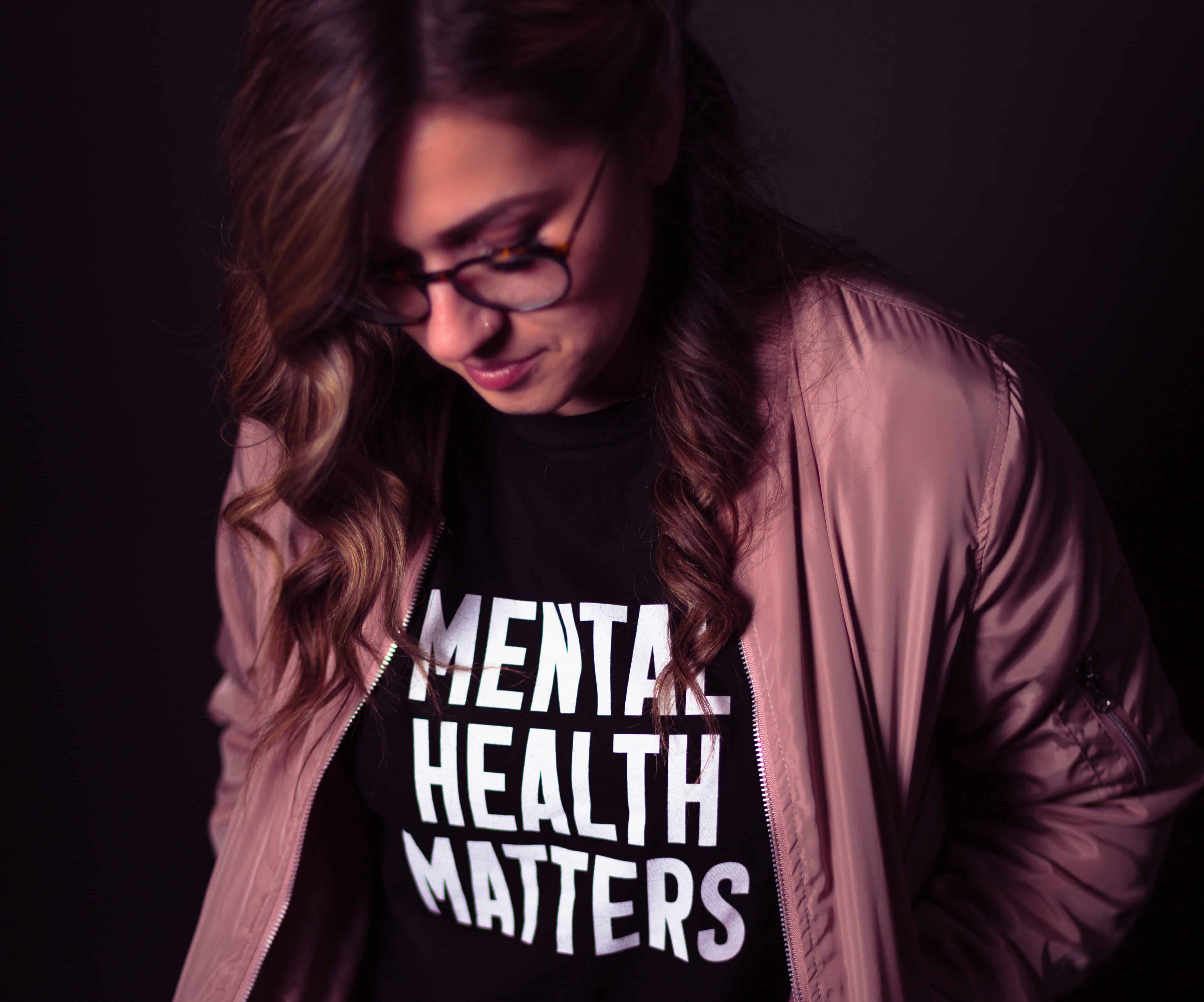“I just need to trust in God more, and then I won’t be so anxious,”
“This is just my cross, and Jesus calls us to pick up our crosses and follow him,”
“God never gives us what we can’t handle.”
These phrases are used far too frequently by the faithful struggling with their mental health. And often, God’s people can have a hard time balancing their mental health with their faith identity. For Catholics, May is a month to celebrate and honor the Blessed Virgin Mary, but since 1949 May has also been National Mental Health Awareness Month. Here are five common questions from people trying to integrate their mental health care into their faith identity:
- Am I letting God down by having anxiety?
I know many people struggling with anxiety who have quoted Matthew 6:34, “Do not worry about tomorrow, tomorrow will take care of itself,” as though they are letting God down by being so anxious. But that is not true! Having a mental illness is nothing to be ashamed of. In fact, 46% of Americans will meet the criteria to be diagnosed with a mental illness during their lifetime. That should not cause us to despair, for Christ himself said, “Those who are healthy do not need a physician, but the sick do” (Luke 5:31). We are people of the resurrection, we know that God is calling us to something greater. But that does not mean we have to be perfect now.
Over the centuries, mental illness has come with stigma and shame, frequently misunderstood as spiritual possession or merely some physical imbalance. While possession and physical illness are very real, mental illness is something quite different. With discoveries in psychology and a greater understanding of how our minds work, we know that sometimes, we just feel off. Some days we wake up and just feel tired and sad, sometimes, we find ourselves simply overwhelmed by life’s responsibilities, and occasionally we can’t let go of what has been bothering us no matter how hard we try. Mental illness comes in many different forms, but in the end, God continues to love us and be with us no matter the circumstance. Don’t let a mental illness become a barrier in your relationship with God.
- What’s the difference between a Spiritual Director and a Mental Health Counselor?
Spiritual direction can play an important role in the spiritual well-being for most people. Yet, a spiritual director is not the same thing as a mental health counselor. Whether your spiritual director is ordained, vowed, or even trained, does not mean they are qualified to provide mental health counseling. Priests are not taught how to distinguish between everyday sorrow and clinical depression. The religious sister who taught you catechism can’t treat you for substance abuse. And your friend who got a license in providing spiritual direction is not licensed to prescribe you anxiety-reducing medication.
This is not to say that spiritual directors are not valuable, far from it. Finding a trained spiritual director and having spiritual guidance are instrumental in the faith life. A spiritual director can provide assistance when discerning God’s movements in one’s life or they can offer feedback and guidance when prayer and faith seem empty and desolate. But, just as one would go to a spiritual director for spiritual guidance, you should go to a counselor for a mental illness.
“How do I know when I need a counselor and not just a spiritual director?” Frequently, people will ask this question, and the easiest answer I can give is: when what is coming up in spiritual direction is more than just concerns about your spiritual life. There is no easy answer for when someone may need a professional counselor, but I feel the same applies for when someone goes to their doctor. When you start feeling achy and congested, you don’t immediately run to the emergency room, but discern if it is something that will pass on its own or if medical help is needed.
The same applies to mental health. If you notice yourself feeling out-of-sync with how you normally function or feel that you just can’t shake off some anxiety, go see a counselor. Just like your doctor may tell you it is only a virus and will work itself out, so too may the counselor say it is a mental concern that should work itself out soon. In the case it is something more serious, you have already taken the first step by seeking out a counselor! And, of course, you should keep going in for spiritual direction even if you do start seeing a counselor to keep up your spiritual health too.
- But what if I start relying on the medication more than I rely on my faith and God?
I have met many faithful people who worry about balancing their faith and trust in God with their use of medication. Worry and scrupulosity can arise when a counselor believes medication may be the best treatment because “how am I leaning on God for support when I am taking a pill to reduce my anxiety?” Right away, I point out that someone is leaning on God when they take the help they are being offered. It is safe to assume your counselor has properly received the necessary training and they will know if medication is the best solution.
Learning that you may have to take medication every day for the rest of your life can be daunting, especially if you are hesitant to use medication normally. And that is okay! Tell your counselor about your nervousness, and if it helps, feel free to consult your doctor or another mental health professional for their advice. God wants you to be happy and to live a fulfilling life. Sometimes that may mean balancing the use of medication, maybe only for a few months, maybe for a few years. But trust that God is working in you and through your counselor.
- What if my therapist told me to do something that contradicts my religion and faith life?
It can be hard to find a professional in any field who shares the same religious beliefs you have. I have known many people who leave a counseling session upset because their counselor told them something that contrasted their faith. For example, a counselor may suggest exploring other faith traditions or practices if there is conflict or scrupulosity. Or they may encourage you to be more physically intimate and open to help with a mood disorder. Yet these suggestions cause a cognitive dissonance within you and you are unsure you should follow the counselor’s advice. Do not fear; you never have to do anything your counselor asks you to do if you do not want to or it makes you feel uncomfortable.
If your counselor does tell you something that contrasts with your faith, do not stop going to therapy. First, talk to a trusted figure in your faith community or bring it up with your spiritual director. Pray about it, and see what God may have to say about what your counselor brought up. Give yourself some time to process the conflict and see if a resolution comes to you. Then, in your next meeting, tell your therapist how you feel. Share with them what you felt and where you saw the contradiction. Don’t be afraid to challenge them and ask refining or clarifying questions. If you find there is not a resolution that you like, it is okay to switch to a different counselor. Above all, don’t let one counselor or frustrating session of therapy turn you away from counseling forever. As with prayer, one tough prayer period should not discourage us from praying ever again. So too, should one rough counselor or session not turn us away from seeking any help we may need.
- How can I find a counselor who will work with me and my faith identity?
Don’t be afraid to ask for recommendations from your pastor, a church representative, or someone you trust in your community. Look at a counselors profile on websites like helloalma.com or psychologytoday.com/us/therapists. Finding the right counselor can take time, and you may have to go through a few before you find the right one, it is completely normal! It is similar to finding a spiritual director; if, after a few sessions, you or the director don’t think it is working well, it is okay to try someone else. Try asking the counselor if they have someone they could recommend now that they have had some experience working with you. They may know someone who could be the perfect fit or give you advice on what to look for in a good counselor. Finally, trust that God will provide you with the support you need if you give it a chance.
-//-
Photo by Matthew Ball on Unsplash.


